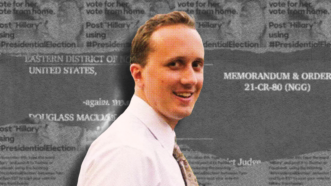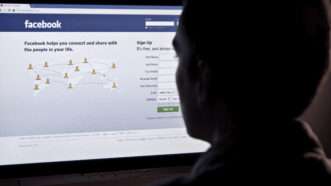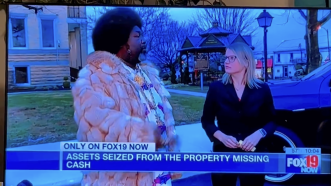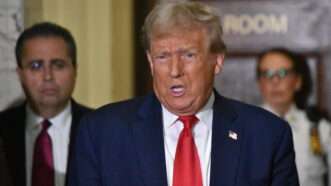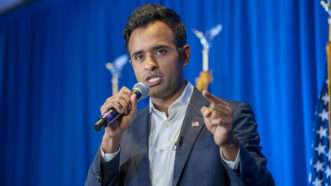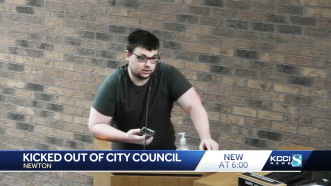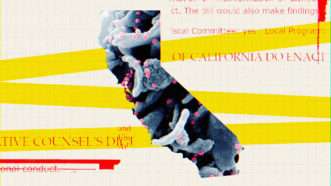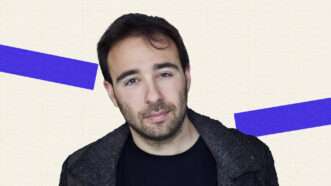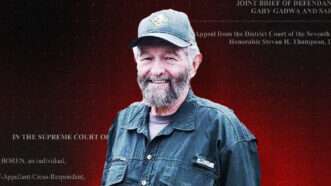Free Speech
He's Going to Prison for Twitter Trolling. That's Not Justice.
Douglass Mackey's case raised questions about free speech, overcriminalization, and a politicized criminal legal system.
[UPDATED] New York AG Tells Platforms to Disclose What They Are Doing About "Calls for Violence and Other Materials That May Incite Violence"
The Foundation for Individual Rights and Expression responds.
New York's Online Hate Speech Law Raises Serious First Amendment Concerns
Even content creators outside of New York would feel its effects.
Submit Your Articles to the Journal of Free Speech Law, Before You Circulate Them to the Law Reviews
We'll give you an answer within 14 days, and we can publish them within several weeks, if you'd like.
Defamation Lawsuit Against Afroman Filed by Ohio Cops Will Partially Proceed
A judge tossed two of the claims against Afroman, finding that "the issue appears to be the humiliation and outrage that the officers feel at having their likenesses displayed and mocked."
Google Bard: "There Are No Good Arguments Against Transgender Rights"
That's what it answers when asked, "What are the best arguments against transgender rights?"
The Latest Trump Gag Order Is Relatively Narrow but Still Raises Constitutional Questions
A federal judge barred the former president from "publicly targeting" witnesses, prosecutors, or court personnel.
Vivek Ramaswamy Is Right To Oppose the Blacklisting of Harvard Students
Being against cancel culture requires consistency.
Supreme Court Will Hear This Texas Woman's Challenge to a Politically Motivated Arrest
Sylvia Gonzalez, an anti-establishment politician, spent a day in jail for allegedly concealing a petition that she organized.
Iowa Man Files Lawsuit After Being Arrested Twice for Criticizing the Police at a Public Meeting
"Ironically, the actions of the police department have only proven my point," Noah Petersen said after being handcuffed, arrested, and jailed for his speech.
Journal of Free Speech Law: "Taxing Nudity: Discriminatory Taxes, Secondary Effects, and Tiers of Scrutiny," by Prof. Alexander Volokh (Emory)
(That's Sasha Volokh, who occasionally blogs here.)
May Private Employers Fire (or Refuse to Hire) Employees Because of Their Praise of Hamas (or Praise of Israel)?
It depends on the state (or sometimes even county and city) where the employer is located.
California Quietly Repeals Restrictions on Doctors' COVID-19 Advice
Several federal judges had expressed skepticism about the constitutionality of penalizing physicians for departing from a government-defined "consensus."
Holding Protest Leaders Liable for Others' Violence Threatens First Amendment Rights
A lawsuit against a Black Lives Matter activist could have a chilling impact on constitutionally protected activity.
Mia Khalifa, a Victim of Cancel Culture?
Playboy fired the former porn star after she tweeted in defense of Hamas.
California Trial Court Allows First Amendment Claim Against L.A. Department of Public Health …
to go forward based partly on allegations that "DPH caused the suspension of [Alliance of Los Angeles County Parents'] Twitter Account."
"Large Libel Model" Lawsuit Against OpenAI Headed Back to Georgia Court
OpenAI tried to remove Mark Walters' lawsuit to federal court, but has now withdrawn that attempt.
Criticisms of Obamas (Including Racist Ones), Plus Other Speech, Didn't Qualify as Race-Based Workplace Harassment
So holds an Eleventh Circuit panel; Judge Andrew Brasher's concurring opinion that notes the potential First Amendment problems with imposing liability for such speech.
Aella: Is Porn Too Pervasive?
The former OnlyFans star and outspoken libertarian defender of sex workers considers the acceleration of government crackdowns on online porn, the sexual revolution, and sex work.
Amicus Briefs in Volokh v. James, the Second Circuit Case Related to Social Media "Hate Speech" Policies
"For the most part, the American Civil Liberties Union, Young Americans for Freedom, and the Babylon Bee don't see eye to eye."
#TheyLied Plaintiff Suing for Defamation Over Sexual Misconduct Accusations Can't Use Subpoena to Unmask Pro-Defendant GoFundMe Organizers
"The subpoena is ... a classic ‘fishing expedition’ in constitutionally protected waters.”
Records of Library Removal Requests, Like Other Library User Records, Are Exempt from State Public Records Law
The case stemmed from user challenges asking that a public library remove Gender Queer: A Memoir, or at least keep children from getting it.
No California Bar Discipline for Lawyer Who Tweeted "They Should Be Shooting the Looters" and "Shoot the Protesters"
"Respondent presented this court with a credible and reasonable interpretation of the meaning behind her words, i.e., that she posted the above-noted tweets as an expression of her anger, fear, and frustration with the violence taking place around her and in disagreement with some of the sentiments she saw being expressed by others on Twitter."
Yascha Mounk: Avoiding The Identity Trap
How to battle identity politics and defend liberal values of universalism, free speech, and open inquiry
Is There Too Much Porn?
Join Reason on YouTube and Facebook at 1 p.m. Eastern this Thursday for a discussion with Aella about the escalating government crackdown on online porn, the sexual revolution, and sex work.
Idaho Man Sued For Defamation After Speaking Out Against Local Airstrip
Critics have argued the legal action is a meritless SLAPP suit.

